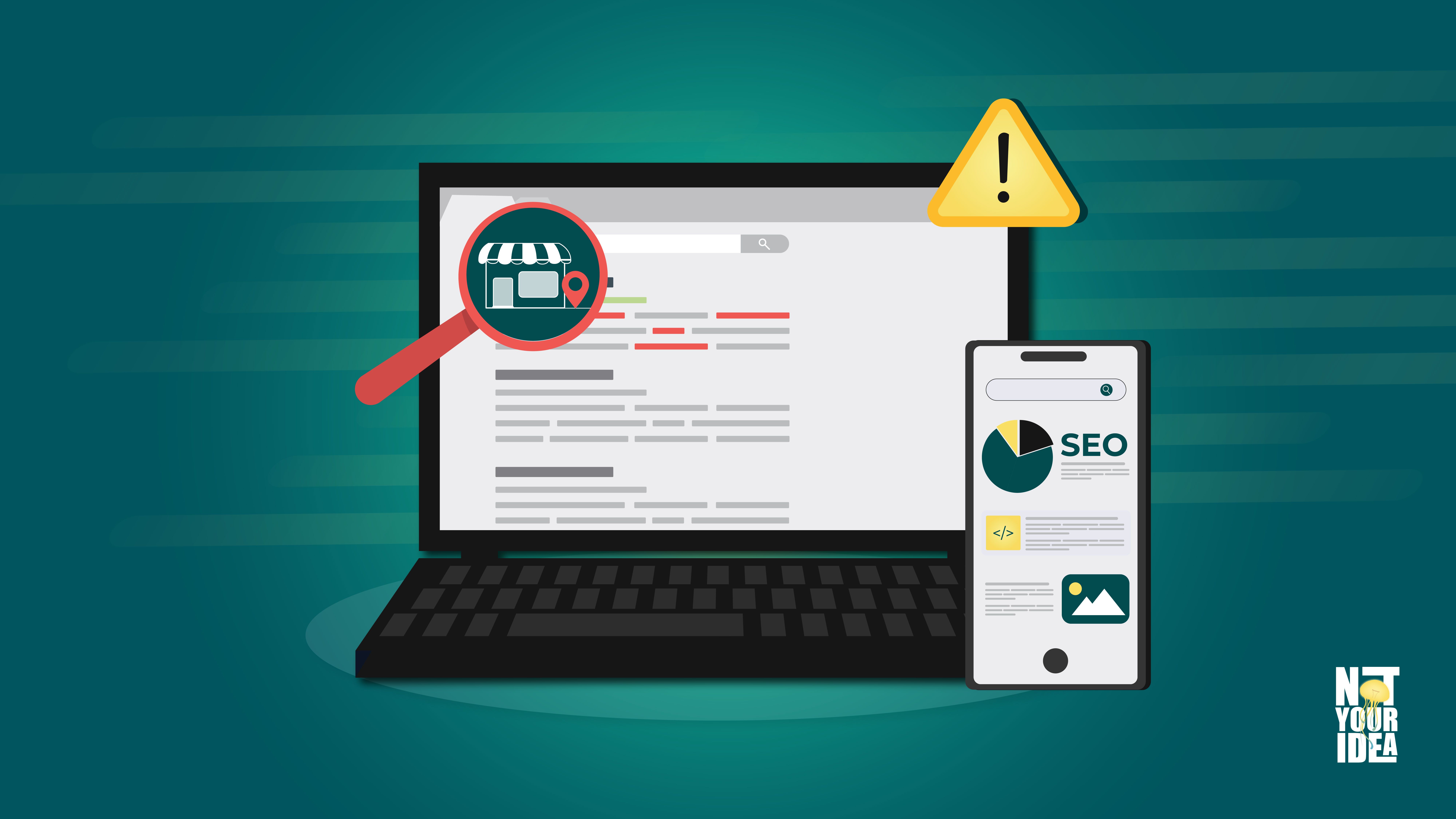The competition for search visibility only intensifies with each passing year and 2025 is no different. While the basics of SEO remain the same, the game is about how quickly it can be executed, and how relevant it is in the current environment.
It’s no secret that a bad optimization strategy can not only cost your brand its ranking on search engines (and now LLMs too!) but it also restricts discoverability. Before we jump to see the 5 common SEO mistakes to avoid in 2025, let’s see how AI has changed this game.
How AI Has Changed the SEO Game in 2025
The key principle of SEO is always providing relevant, good quality content and the things necessary for user experience optimization. The core of how search results come into being, are shown, and ranked is rapidly changing with the renaissance of AI-powered search engines and large-language models (LLMs).
Search today now includes AI-generated summary results, voice search, and conversational answers. These systems do not search for keywords alone; instead, they evaluate the context, completeness, and authority before deciding the content to extract.
This means for SEO teams:
- Answer depth: Partial answers or duck clouds will hardly get featured. Focus more on creating informative and in-depth content.
- Structure: Proper structure works in favor of AI.
- Original content: Originality matters over generic content in AI searches.
Essentially, AI has not replaced SEO; it raised the bar. Brands that refocus their strategies to be indeed search-engine-friendly and AI-friendly are bound to gain traction.
So, to ensure you stay ahead on the course of online visibility, let us run down the five SEO mistakes that you should do away with.
Publishing Content That Doesn’t Match Search Intent
Targeting keywords while neglecting the searcher’s actual intent remains a very costly mistake. Approximately 52% of keywords searched on Google carry informational intent, but many brands are still missing the opportunity to fully satisfy user needs. You would want to create content that gives the users a comprehensive, straightforward, and accurate answer if you really want to build brand credibility!
In 2025, search algorithms will pay attention to content that adequately answers the search query with complete, clear, and accurate information. For instance, if a user searches for “best B2B lead generation strategies,” a blog that shares generic tips with no case studies will probably lose to a competitor that shares specific examples, credible data, and actionable steps. The same is true for AI summarizing tools. They also reward content that not only answers the main question but also anticipates the related follow-up questions.
How to Fix It:
- Determine the intent (informational, commercial, transactional) for each keyword.
- Analyze what the top-ranking pages are doing and determine gaps for you to fill.
- Use headings and structure that makes finding information easy.
Neglecting Mobile Optimization
Mobile-first indexing has been accepted for many years, which makes it even more critical. In the year 2025, mobile devices will have contributed to more than 60% of Google search activity within the U.S. Mobile web traffic, on the other hand, is ranked close to 63% worldwide.
Users’ frustration with slow loading times, awkward navigation, and bad mobile layouts translates into a drop in rankings. And, with the increasing number of mobile voice and AI searches, the trend is to rank at the top those fast, mobile-friendly experiences.
How to Fix it:
- Test your mobile usability with Google PageSpeed Insights and Google Lighthouse.
- Compress your images, clean all your code, and implement lazy loading for faster time to interact.
- Make easy-to-use buttons, menus, and forms on any device.
Weak Internal Linking That Dilutes Authority
Internal linking is not just a means to assist users in their site navigation; it also forms a major ranking signal for search engines. Inconsistent or random internal linking systems tend to distribute authority too thinly, thereby lessening that authority on pages most worthy of it.
Cluster linkages are evaluated by search algorithms in 2025 to assign topical authority. Multiple high-quality articles on a subject exist, but by not being linked logically, you stand to lose out on rankings.
How to Fix It:
- Create pillar pages as hubs for related content.
- Use descriptive anchor text in keywords.
- Perform an internal links audit every quarter, which includes removing broken links and strengthening good ones.
Overlooking Local SEO Opportunities
Local SEO opportunities are places with the highest conversion rates if you serve a geographical area. It is more powerful than ever in 2025, wherein 76% of people who do a local search via their smartphone visit a business within 24 hours, and 28% actually make a purchase.
As AI assistants pull local search results increasingly from verified profiles, an incomplete or outdated listing can harm your visibility.
How to Fix it:
- Keep the hours, services, and photos accurate on your Google Business Profile
- Use local keywords clearly in meta descriptions, headings, and on-page content
- Get customer reviews and respond to them
Creating Duplicate or Thin Content
Duplicate content can hurt your SEO because it makes it harder for search engines to decide which page to index and rank, splitting the ranking power between similar pages. Thin content, articles with very little useful information and lowers your site’s authority.
Both search algorithms and AI tools favor the original source over reworded content that doesn’t add anything new. Duplicate articles that lack any human editing or additions will surely fall to the side.
How to Fix It:
- Conduct a website content audit on overlapping content and combine topics that are similar
- Add some original research, expert commentary, or case studies to stand out with content
- Focus more on original content rather than going for higher word count
The SEO world of 2025 is about getting the fundamentals right. Intent matching, mobile optimization, internal link structuring, getting into the local SEO right, plagiarism-free content and the list goes on. These are inescapable for a competitive business. If you want to move your brand up the rankings and build a robust online presence, drop us a line and we can work out a strategy!
FAQs
What is the Most Common SEO Mistake in 2025?
The most common and consistent error is publishing content that has no search intent, something that lowers rankings and adversely affects conversion because the content does not fulfill the expectations of the user.
Does AI Affect SEO Strategies?
Yes, Artificial Intelligence has transformed the way search engines view and rank contents, giving much importance to relevance and clarity. Still, the basics of SEO, such as quality, structure, and authority, remain the true success factors.
How Often Should I Do an SEO Audit?
Every quarter, you should conduct an SEO audit, so as to address issues as soon as they arise. It is also a good practice to review your strategy after major algorithm updates to preemptively address classification changes.
How To Work Out an Effective SEO Strategy in 2025?
Begin by relating keywords with user intent and start creating high-quality, original content around them. Working from there, technical optimization, useful internal linking, and analyzing performance on a regular basis.
What is the Most Effective Tool of SEO?
Some of the most effective tools of SEO are Semrush, Ahrefs, SE ranking, and Screaming Frog.



